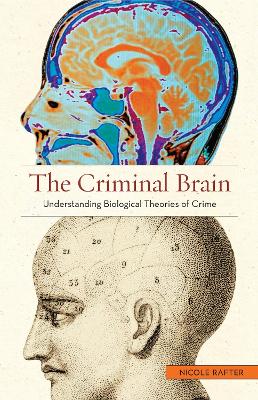What is the relationship between criminality and biology? Nineteenth-century phrenologists insisted that criminality was innate, a trait inherent in the offender’s brain matter. While they were eventually repudiated as pseudo-scientists and self-deluded charlatans, today the pendulum has swung back. Both criminologists and biologists have begun to speak of a tantalizing but disturbing possibility: that criminality may be inherited as a set of genetic deficits that place one at risk for theft, violence, and sexual deviance. If that is so, we may soon confront proposals for genetically modifying “at risk” fetuses or doctoring up criminals so their brains operate like those of law-abiding citizens. In The Criminal Brain, well-known criminologist Nicole Rafter traces the sometimes violent history of these criminological theories and provides an introduction to current biological theories of crime, or biocriminology, with predictions of how these theories are likely to develop in the future.
What do these new theories assert? Are they as dangerous as their forerunners, which the Nazis and other eugenicists used to sterilize, incarcerate, and even execute thousands of supposed “born” criminals? How can we prepare for a future in which leaders may propose crime-control programs based on biology? Enhanced with fascinating illustrations and written in lively prose, The Criminal Brain examines these issues in light of the history of ideas about the criminal brain. By tracing the birth and growth of enduring ideas in criminology, as well as by recognizing historical patterns in the interplay of politics and science, she offers ways to evaluate new theories of the criminal brain that may radically reshape ideas about the causes of criminal behavior.
- ISBN10 0814776566
- ISBN13 9780814776568
- Publish Date 1 October 2008
- Publish Status Active
- Out of Print 23 April 2014
- Publish Country US
- Imprint New York University Press
- Format eBook (EPUB)
- Pages 352
- Language English
